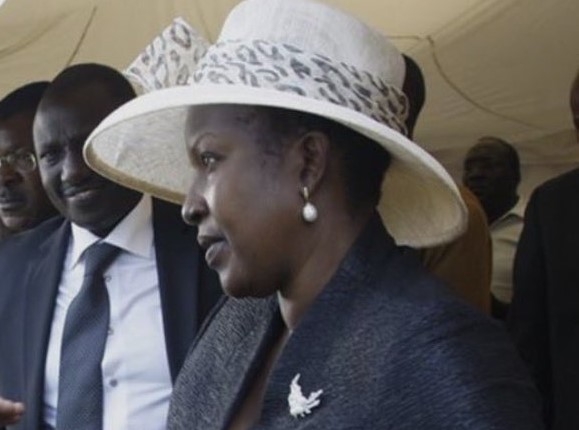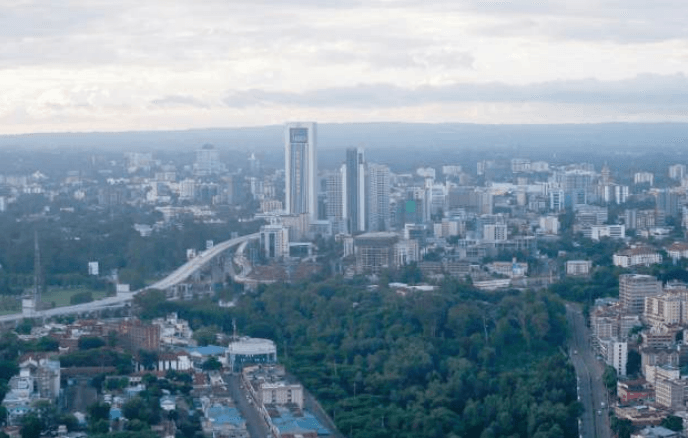
Food is recognised as the third most basic human necessity after air and water, and it is essential for survival and is a core element of human rights according to the UNHCR.
The Universal Declaration of Human Rights, alongside two legally binding international covenants, enshrines the right to food as part of the broader framework of human rights, including life, liberty, work, and education.
According to the Food and Agriculture of the United Nations (FAO), despite the world producing enough food to feed its population, 10 per cent of people globally still face hunger
In developing regions, the organisation stated that this disparity underscores the critical need for not only access to food but to a diverse, nutrient-rich diet that is both affordable and safe.
Kenya joins the world in marking World Food Day 2024, titled " Right to Foods for a Better Future. The event is marked on October 16 annually.
The theme reminds the global community of the fundamental human right to adequate nutrition.
The annual event was established to commemorate the founding of the Food and Agriculture Organization (FAO).
The World Food Day serves as a platform by FAO to promote global action against hunger and to remind world leaders and citizens alike that food security is essential to improving quality of life.
World Food Day for FAO is said to directly align with its mission to eradicate hunger, improve nutrition, and support the development of sustainable food systems.
FAO's mission becomes even more significant in rural areas where access to nutritious food and agricultural resources remains limited.
HUNGER INDEX
The 2022 Global Hunger Index revealed that out of 54 African countries, 37 nations have levels of hunger rated as "serious" or worse, highlighting the disproportionate challenges that the continent faces in achieving food security.
" The Right to Adequate Food extends beyond the mere provision of calories; it includes access to diverse and nutritious diets that sustain health and well-being.
FAO has called for global efforts to ensure food justice, where everyone, regardless of their socio-economic status, has the right to nutrient-rich food.
Initiatives such as improving access to affordable diets, promoting food safety, and supporting urban farming are part of a larger effort to secure the right to food and alleviate global hunger.
CHALLENGES IN AFRICA
Africa remains one of the regions most affected by food insecurity. According to the 2022 Global Hunger Index, hunger rates in several African nations are at “serious” or higher levels, with millions facing malnutrition, stunted growth, and other adverse health effects.
According to the World Food Program, in AF many countries, conflicts, climate change, and economic instability have intensified insecurity, making it harder for communities to access the food they need to survive.
Moreover, Africa's agricultural sector remains underdeveloped despite being the livelihood for a significant portion of its population, limited infrastructure, climate challenges, and outdated farming methods continue to hamper progress.
However, organizations such as the FAO and local governments are stepping up efforts to support sustainable farming practices, climate-resilient agriculture, and innovative food systems to help African countries overcome these challenges.
KENYA IN ACTION
This year’s World Food Day 2024 Food Festival in Kenya is set to spotlight crucial conversations on reshaping food systems and advocating for the right to food for all.
It was a session organised by the Zero Hunger Initiative in partnership with APHRC.
The event brought together key policymakers, innovators, and community leaders to discuss sustainable solutions to food security challenges in Kenya and beyond.
Throughout the festival, attendees engaged in discussions centred around lasting solutions for food justice, exploring innovative strategies to ensure everyone has access to nutritious food.
The festival aimed to drive impactful actions that address both current food system inefficiencies and future food security needs.
The festival also welcomed a significant guest like Finland Ambassador Leo Svahnbäck , who highlighted the critical importance of ensuring access to food as a basic human right.
" Food is a basic human right, and we must ensure that everyone has access to it as a common and public good,” said Svahnback.
He further underscored Finland’s commitment to improving food security across African cities, particularly through promoting urban farming, FoodSafety, and healthy diets.
Additionally, praised initiatives like Healthy Food Africa, stating that Projects like Healthy Food Africa are essential in making food systems more sustainable, equitable, and resilient.
These efforts are integral to transforming food systems in a way that benefits communities and strengthens resilience against food insecurity.











